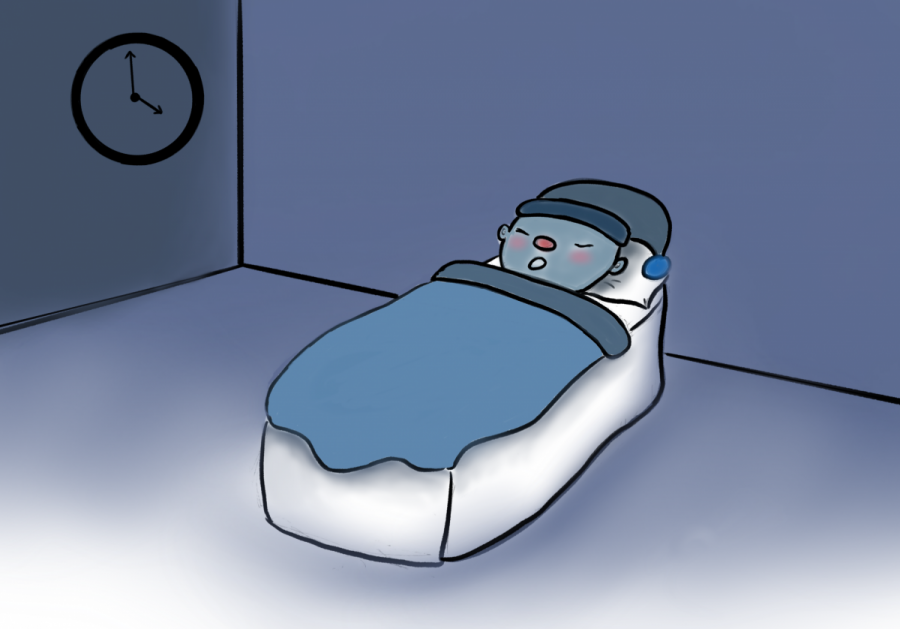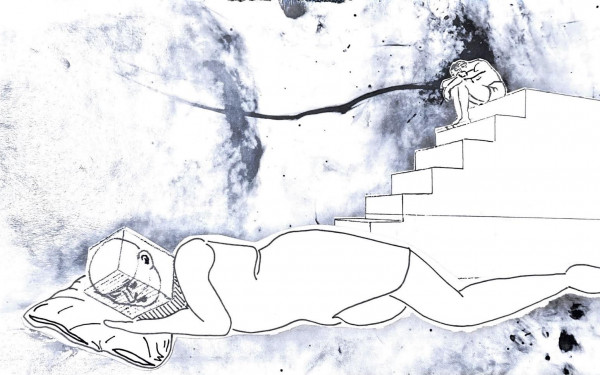‘Tis the season to stay in bed!
Seasonal depression, poor Concordia resources, and how to deal with both
I was happily coasting through the semester when, after two months of maintaining healthy habits—like going to bed before midnight and not doing schoolwork on the weekend—I suddenly felt like I’d been hit by a bus.
I no longer felt well-rested after eight hours of sleep. My motivation to do readings vanished. I wanted to hide in the comfort of my bedroom, doom-scrolling and playing addictive mobile games until it was time to eat my daily meal of microwave popcorn—I wanted to sleep for 14 hours.
Suddenly, it dawned on me; the days had become shorter and the weather consistently colder. It was high time for seasonal depression to rear its ugly head.
Autumn has always been the highlight of my year, with activities like visiting corn mazes, watching scary movies and cooking hearty soups.
Each year, however, my mental health decays and getting out of bed becomes a struggle. I've had to figure out how to handle life while being emotionally incapacitated.
It’s extremely disappointing that Concordia doesn’t have more resources for students suffering around this time of year (or any time of year, really). Triage for Concordia’s counselling services only accepts ten new students per week, and unless you have a timer set and the fastest fingers in the world, it’s almost impossible to get a spot. Students only get ten sessions, which means you have to pick and choose what trauma you want to unpack and save the rest for later.
Another insufficient resource that Concordia offers is the short-term absence form. Technically, it allows you to miss up to two days of class or an assignment worth up to 30 per cent of your grade. Students can claim two short-term absences per academic year. If you’re sick, too miserable to get out of bed, or too depressed to submit an assignment on time more than twice during the whole school year, you’re screwed.
I’ve been able to stave off the effects of seasonal depression by getting enough sleep. It’s not revolutionary, but getting enough sleep has been integral to functioning during the day. As the days have gotten shorter, I’ve tried to make sure that my sleep schedule has aligned with circadian rhythms, meaning that I go to bed earlier.
Since autumn marks the beginning of a new school year, everyone becomes more susceptible to burnout from constantly busting their ass. Taking time away from frequent distractors when I can, allows me to spend time with myself. Resting, to me, looks like taking a bath or a shower, doing a puzzle, or cooking an elaborate meal. Spending quality time with yourself can be an easy way to pull yourself out of a rut.
Getting some fresh air and moving my body has been helpful. It isn’t a necessity to stroll merrily away from my apartment for kilometres on end, standing outside on my balcony and taking a few deep breaths while I wait for my kettle to boil will suffice. Movement can even be as simple as tidying my living room before I lay on the couch for the rest of the day. You don’t have to be doing the most to impact your mood, and holding yourself to such a high standard can make you crash and burn.
Seasonal depression is brutal to manage when you’re trying to stay afloat. It has ruined entire semesters for me, and my burnout has impacted my work and relationships. While my strategies aren’t perfect solutions that have cured my mental illness, they are usually enough for me to only feel a little resentful that Concordians only receive two formal short-term absences per academic year.







